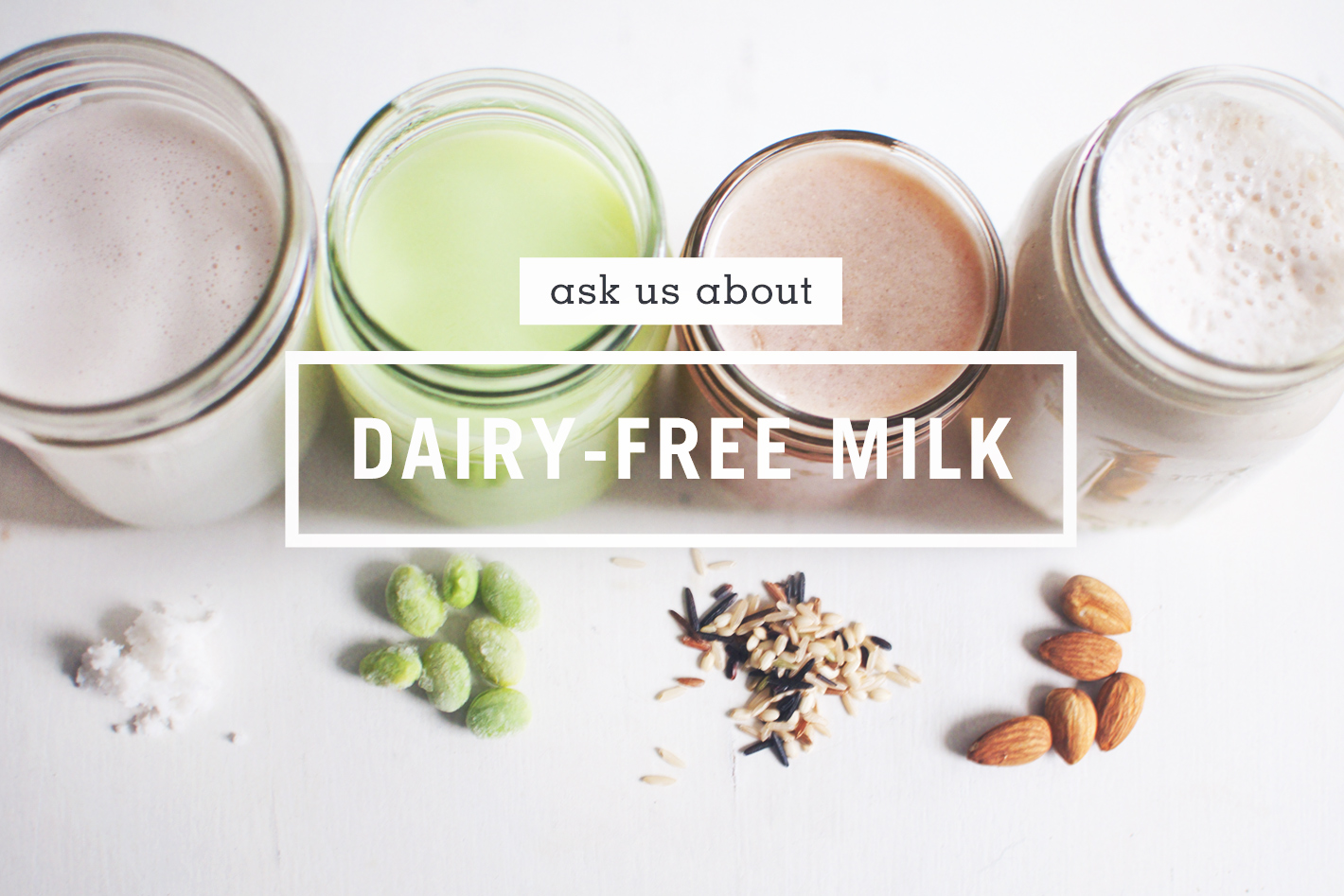The Best Non Dairy Milk
Jan 17, 2018 - The 9 Best Non-Dairy Substitutes for Milk. Why You Might Want a Substitute. Share on Pinterest. Soy milk is made with either soybeans or soy protein isolate, and often contains thickeners and vegetable oils to improve taste and consistency. Coconut Milk. While every health care professional's ranking will vary slightly, here's my list of the best nondairy milks: Pea protein milk. My top pick is pea protein milk. One of the most popular nondairy milks, almond milk has a smooth, mild taste and texture. Coconut milk.
- The Best Non Dairy Milk For Diabetics
- Healthiest Non-dairy Milk
- The Best Non Dairy Milk For Toddlers
- What Is The Best Non Dairy Milk For Toddlers
To bring you the best content on our sites and applications, Meredith partners with third party advertisers to serve digital ads, including personalized digital ads. Those advertisers use tracking technologies to collect information about your activity on our sites and applications and across the Internet and your other apps and devices. You always have the choice to experience our sites without personalized advertising based on your web browsing activity by visiting the, the, and/or the, from each of your browsers or devices. To avoid personalized advertising based on your mobile app activity, you can install the. You can find much more information about your privacy choices in.

Even if you choose not to have your activity tracked by third parties for advertising services, you will still see non-personalized ads on our site. By clicking continue below and using our sites or applications, you agree that we and our third party advertisers can: • transfer your personal data to the United States or other countries, and • process your personal data to serve you with personalized ads, subject to your choices as described above and in.
Calcium is very important for your health. In fact, you have more calcium in your body than any other mineral. It makes up much of your bones and teeth and plays a role in heart health, muscle function and nerve signaling.
The recommended daily intake (RDI) of calcium is 1,000 mg per day for most adults, though women over 50 and everyone over 70 should get 1,200 mg per day, while children aged 4–18 are advised to consume 1,300 mg. However, a large percentage of the population doesn’t meet their calcium needs through their diet (). The main foods rich in calcium are dairy products like milk, cheese and yogurt.
The Best Non Dairy Milk For Diabetics
However, many non-dairy sources are also high in this mineral. These include seafood, leafy greens, legumes, dried fruit, tofu and various foods that are fortified with calcium. Here are 15 foods that are rich in calcium, many of which are non-dairy.

Healthiest Non-dairy Milk
Seeds are tiny nutritional powerhouses. Made in india guru randhawa punjabi song. Some are high in calcium, including poppy, sesame, celery. For instance, 1 tablespoon (9 grams) of poppy seeds pack 126 mg of calcium, or 13% of the RDI (). Seeds also deliver and healthy fats.
The Best Non Dairy Milk For Toddlers
For example, chia seeds are rich in plant-based (). Sesame seeds have 9% of the RDI for calcium in 1 tablespoon (9 grams), plus other minerals, including copper, iron and manganese ().
Summary Many seeds are good sources of calcium. For instance, 1 tablespoon (9 grams) of poppy seeds has 13% of the RDI, while the same serving of sesame seeds packs 9% of the RDI. Most cheeses are excellent sources of calcium. Parmesan cheese has the most, with 331 mg — or 33% of the RDI — per ounce (28 grams) (). Softer cheeses tend to have less — one ounce of brie only delivers 52 mg, or 5% of the RDI.
What Is The Best Non Dairy Milk For Toddlers
Many other varieties fall in the middle, providing about 20% of the RDI (, ). As an added bonus, your body absorbs the calcium in more easily than that from plant sources. Many types of cheese are also, such as. What’s more, aged, hard cheeses are naturally low in lactose, making them easier to digest for people with.
Related Posts
- Cars Fast As Lightning Game Download
- Warriors Orochi 4 Unlock
- Contoh Rancangan Perniagaan
- Aashiqui 2 Video Song Download
- One In Different Languages
- Chennai Gana Video Song Download
- Mogali Rekulu Episodes
- Send Ringtones Directly To Phone
- Rambo 1 Full Movie Youtube
- Gta 4 Highly Compressed 100mb
- Itransfer Free
- Kabhi Khushi Kabhi Gham Full Movie Youtube
- Live Tv Streaming Service Providers
- A To Z Mp3 Songs Free Download
- Download Ms Office 2013 Full Crack
- Vmware Tools Esxi 6.5
- Melsec Fx Software
- Cara Mendownload Subtitle
- Step Up Full Movie 123movies